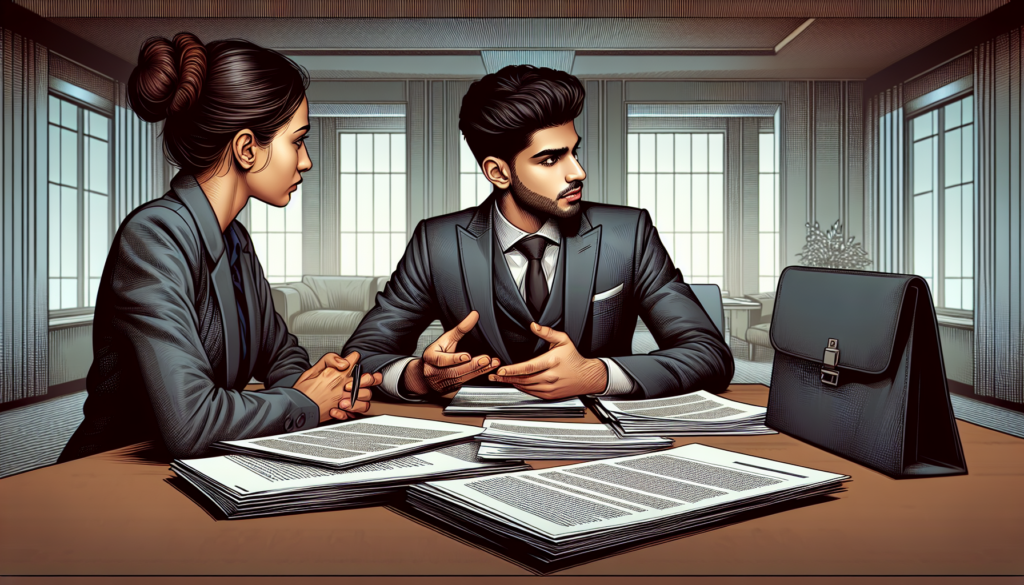Short Answer:
Music downloads law under copyright protection grant creators exclusive rights to their work, making unauthorized downloads illegal; consequences can include hefty fines. Authorized platforms like iTunes and Amazon Music ensure fair compensation for artists, highlighting the importance of respecting and supporting music creators legally.
Introduction & Background
In the digital era, the lines between lawful enjoyment of music and copyright infringement have blurred, leading to complex legal challenges. As an attorney specializing in digital assets and copyright law, with a distinguished background working on venture capital, M&A, and private equity transactions at Locke Lord LLP, and as a former General Counsel for Grooveshark, I’ve navigated the treacherous waters of copyright disputes and digital content regulation. My experience has granted me unique insights into the legalities surrounding music downloads, the protection of creative rights, and the compliance with securities regulation and exchange compliance in the digital asset sphere.
The advent of the internet and digital platforms has revolutionized how we access and distribute music, raising significant legal considerations about copyright infringement and the rights of creators. Given my decade-long legal experience, particularly in advising high-growth technology companies and major DEX protocols on securities law and digital asset-related regulatory guidance, I am positioned to discuss the nuances of music downloads law. This article aims to shed light on copyright law as a protective mechanism for artists, the legality of music downloads, and the impact of unauthorized distribution on the music industry, leveraging my extensive background to provide a comprehensive understanding of these critical issues.
Key Takeaways
-
Copyright law protects creators by granting exclusive rights over their music, including control over use and distribution, and illegal downloading can lead to serious legal consequences.
-
Legal music downloads involve obtaining music from authorized platforms, which compensates artists and provides benefits such as higher audio quality, offline access, and the absence of ads.
-
While the Fair Use Doctrine allows certain uses of copyrighted material without permission for purposes like criticism or teaching, it has limitations and does not permit sharing full copies of songs or unauthorized distribution.
Navigating Music Downloads Law in the Digital Age
Copyright law serves as a protective shield for creators. It grants them exclusive rights over their music recordings and controls their work’s commercial use and distribution. Besides safeguarding the creators’ rights, it also enables fans to legally download music and enjoy it without rights infringement.
The internet has made music readily accessible, making it easy to succumb to the temptation of illegal downloading or file sharing. However, bear in mind that these activities can result in serious consequences due to copyright infringement. It’s not just about protecting the artists; it’s also about respecting their work and the effort they put into creating music that resonates with us.
What Constitutes a Copyright Infringement?
So, what exactly constitutes a music downloads law copyright infringement? Well, it involves unauthorized downloading or sharing of copyrighted music, and other actions that violate the rights of the copyright holder. Think of it this way, downloading a copyrighted song without authorization over peer-to-peer networks isn’t much different from a person walking into a music store and smuggling a CD out without paying.
The penalties for such infringements can be quite hefty, with statutory damages ranging from $750 to a whopping $150,000 for each infringing act. And trust us, that’s the kind of ‘price tag’ you wouldn’t want attached to your music playlist.
The Role of Copyright Holders
The guardians of music, also known as copyright holders, often play a significant role in managing and protecting the rights of artists and their music. The copyrights to songs written by artists are usually owned by record labels in most cases. This means that the labels have the legal rights to control and distribute the music. This means that they have the power to control how these songs are reproduced, distributed, and used.
The ownership of a copyright can be transferred via contracts such as assignments, or works made for hire, with employers or commissioners maintaining ownership. U.S. copyright law prohibits the copying or distribution of sound recordings, in both physical and digital formats, without the permission of the copyright owner. So, next time you think about copying that catchy tune, remember the role of copyright holders and the consequences of not respecting their rights.
Understanding Legal Music Downloads
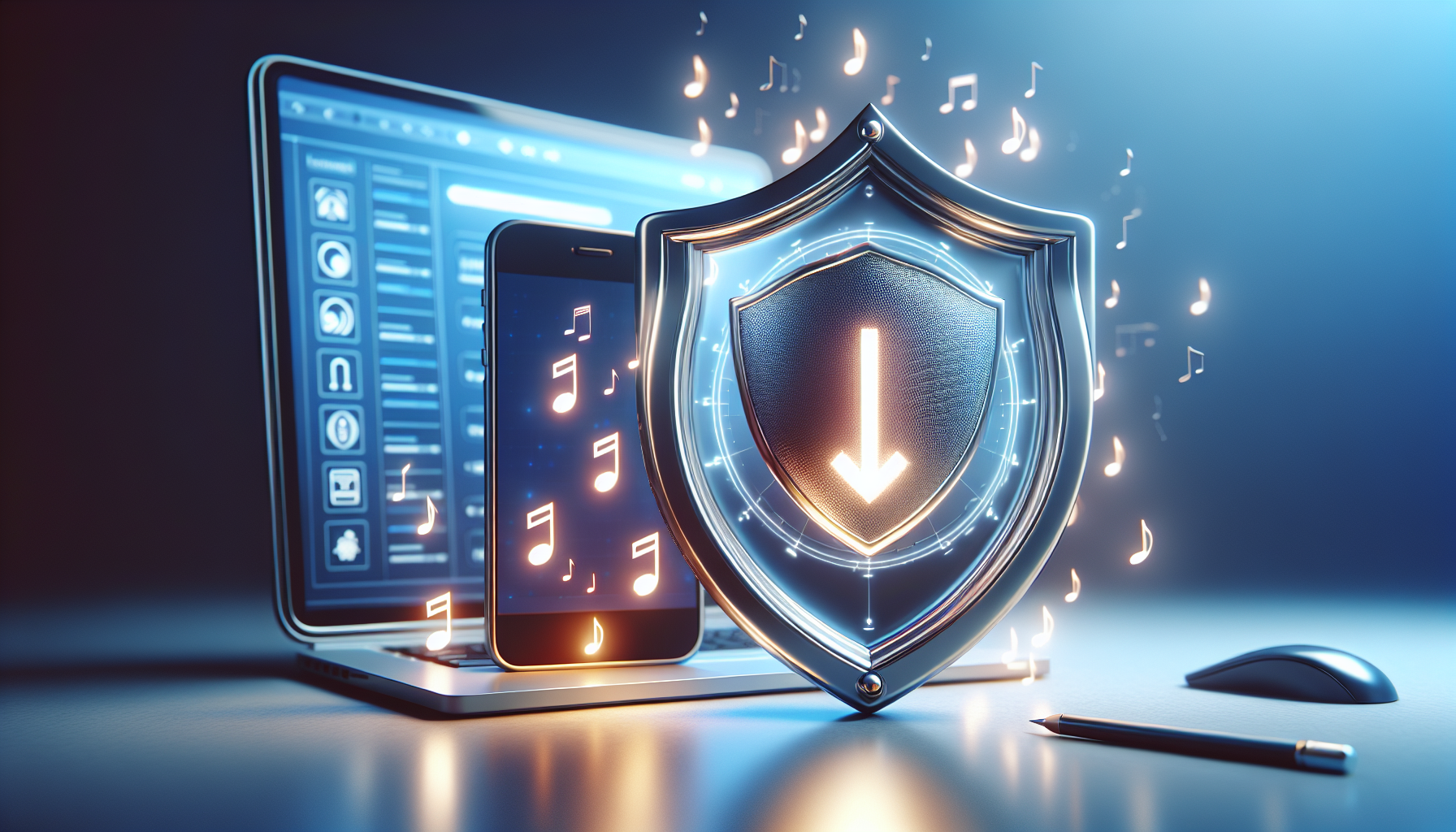
Having covered the fundamentals of copyright law and infringement, we will now delve into the realm of legal music downloads. Sure, it might seem a little daunting, but trust us, it’s simpler than it sounds and has its perks. Legal music downloads are all about obtaining permission from copyright holders, ensuring that we stay within the legal boundaries and also contribute to compensating artists and creators.
Apart from being on the right side of the law, legal music downloads offer some fantastic benefits. Here are a few:
- The ability to customize playlists
- Enjoy higher audio quality
- Avoid pesky ads
- Potentially lower costs compared to streaming services
- Access and enjoy tracks offline
- Ensure user privacy
- Serve as a backup for music files
So, it’s not just about doing the right thing, it’s also about enhancing your music experience.
Authorized Platforms for Music Downloads
You are likely familiar with platforms such as iTunes, Amazon Music, and iLike; however, you might not be aware that these are examples of popular services where users can legally download music. That’s right, these authorized platforms for music downloads not only let you access your favorite tunes but also pay royalties to copyright owners, ensuring they get their fair share for their creative output.
These platforms offer music in a range of file formats, such as MP3, WAV, and FLAC, catering to your preferences for file size and audio quality. So next time you’re looking to add to your music collection, consider these authorized platforms. It’s a win-win situation – you get your favorite tracks, and artists get their due credit.
The Impact of Illegal Downloading on the Music Industry
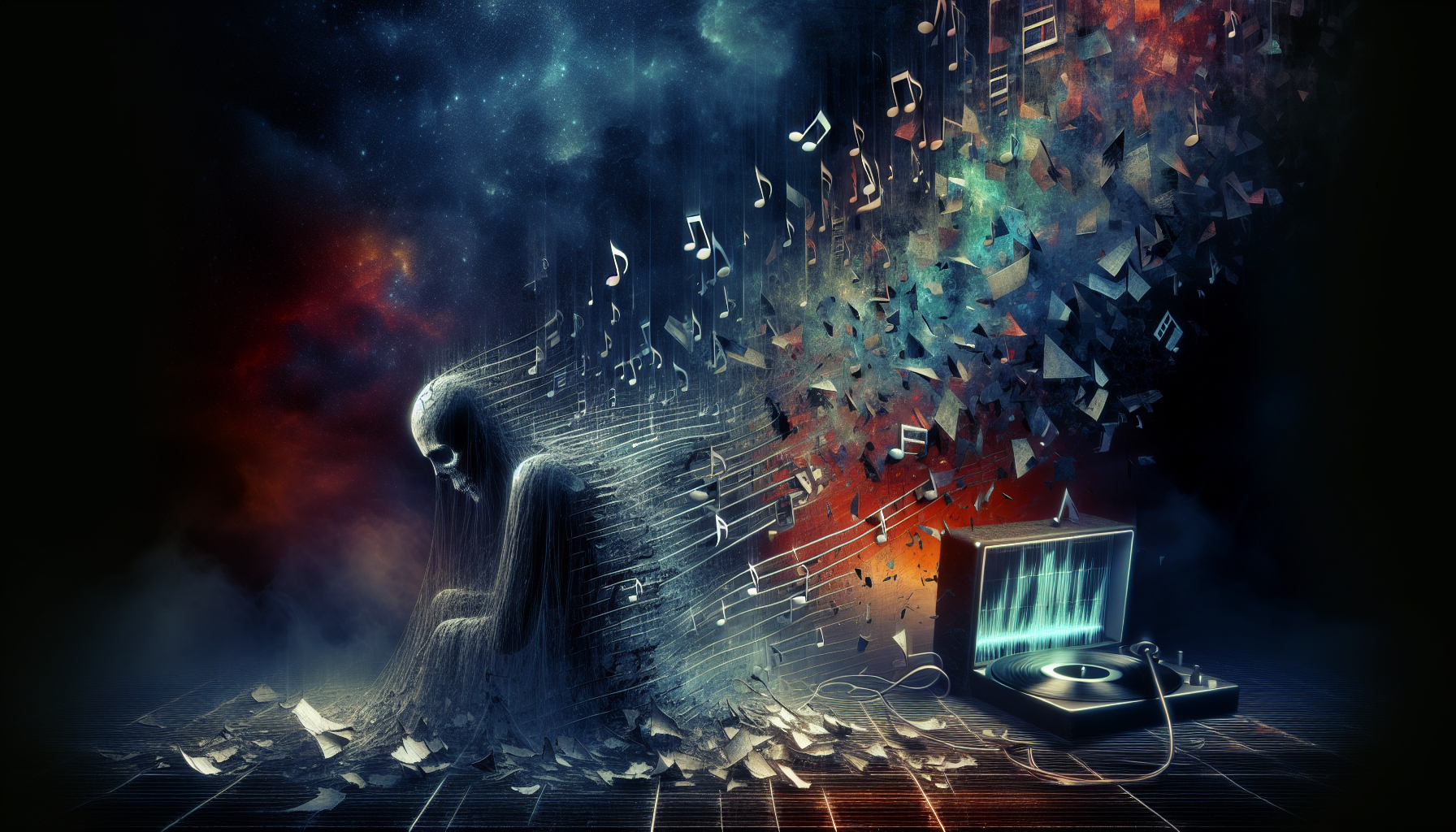
Though it might be tempting to download the artist’ latest hit without hesitation, it is crucial to contemplate the impact of our actions. Illegal downloading infringes on copyright laws and denies artists and copyright holders their deserved royalties, leading to potential loss of revenue for them and the recording industry.
Moreover, the financial repercussions from illegal downloading can negatively affect the creative capacities of artists. Financial struggles may hinder artistic endeavors and production for many artists, leading to a decrease in the quality and quantity of music produced. So next time you’re tempted to download that pirated music track, remember the ripple effects of your actions.
Fair Use Doctrine: When Is Downloading Music Legal?
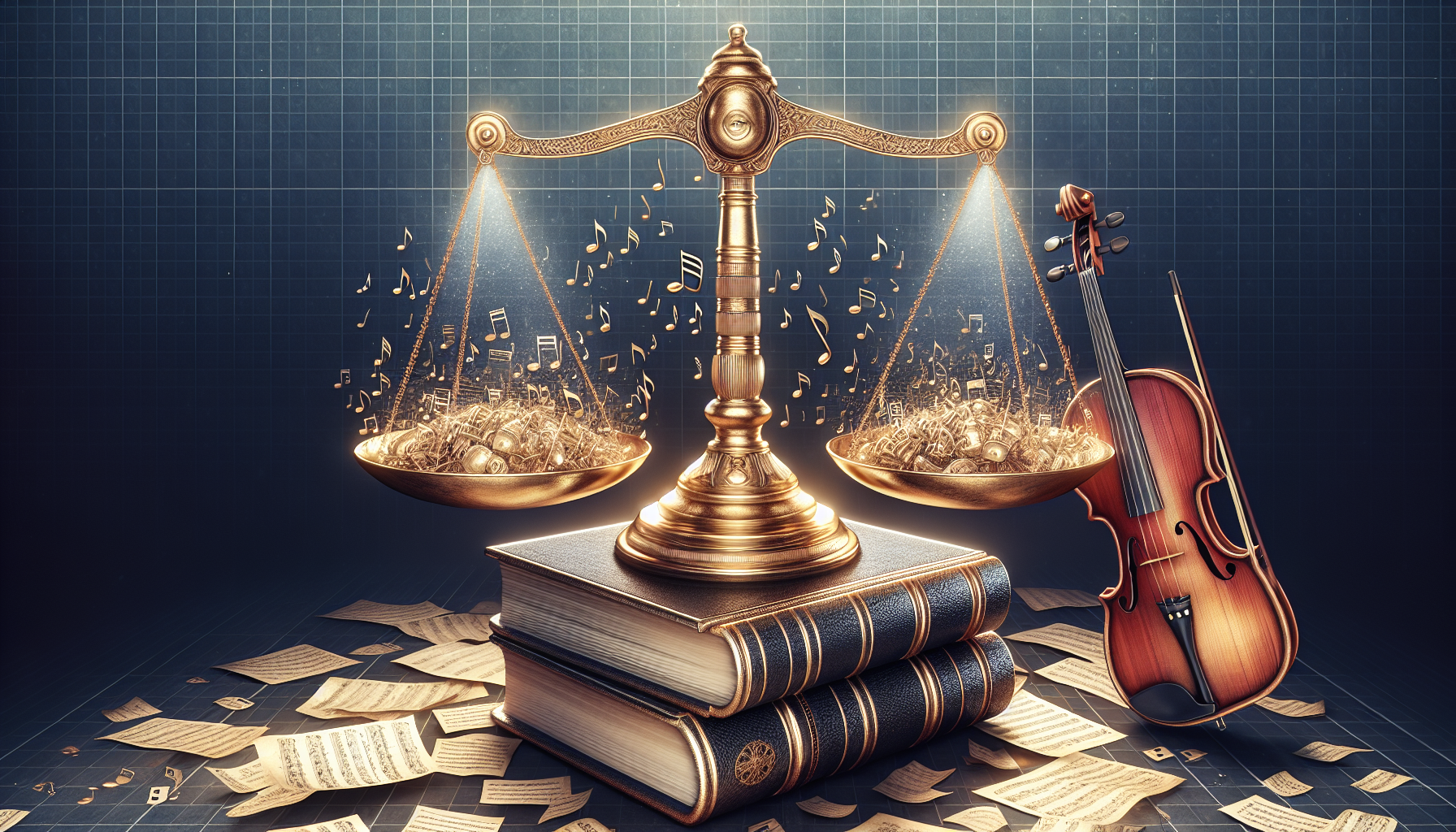
Now, we will explore a concept referred to as the Fair Use doctrine. This doctrine allows the use of copyrighted material without permission for purposes such as:
- criticism
- comment
- news reporting
- teaching
- scholarship
- research
So, if you’re a music critic or a scholar studying the influence of hip-hop on modern poetry, you’re in luck!
For instance, you can review a song with excerpts, summarize a song in a news report, or quote a song for scholarly clarification. Even creating parodies may qualify as fair use. Similarly, personal activities such as copying music to your computer for personal use from legally owned CDs may be considered fair use.
Creative Commons licenses also facilitate the legal sharing of music by allowing artists to specify the conditions under which their work can be used by others.
Limitations of Fair Use in Downloading
However, much like anything else in life, the Fair Use doctrine comes with its own limitations. It’s a legal doctrine applied on a case-by-case basis, allowing the use of copyrighted material under certain conditions without the need for permission from or compensation to the copyright holder. The determination of fair use involves evaluating various factors, including:
- The purpose of use
- The nature of the copyrighted work
- The amount of the copyrighted work used
- The impact of the use on the original work’s market value.
However, there are misconceptions about fair use, such as the idea that it allows sharing full copies of songs through homemade mixes or uploading music to a friend’s cloud storage. These actions are not permitted within its limits and could lead to potential copyright infringement. So, while fair use does provide some leeway, it’s essential to know its limits to avoid crossing any legal boundaries.
The Consequences of Illegal Downloading
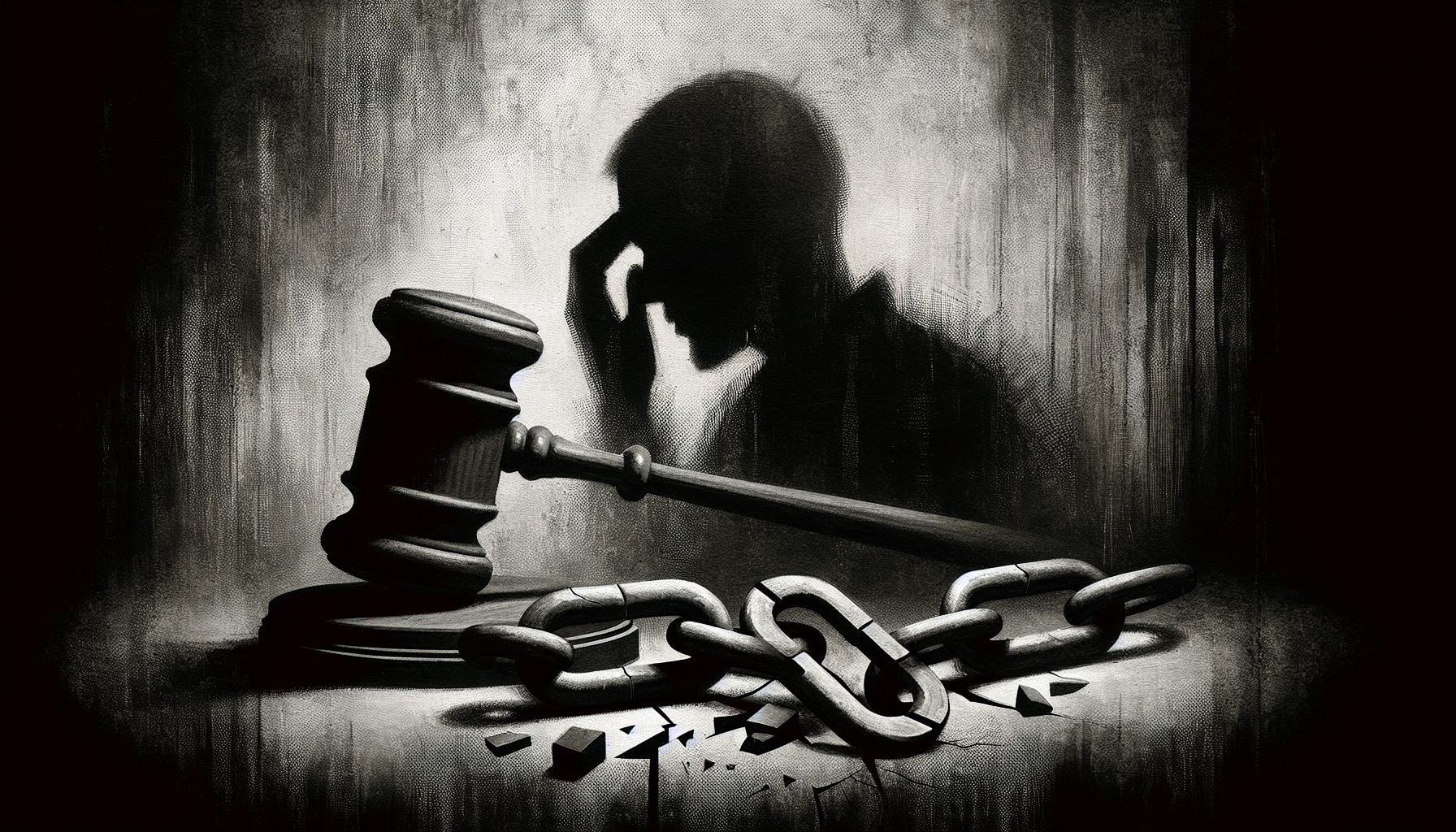
By now, you should comprehend the significance of legal music downloads. However, it’s equally important to be aware of the consequences of not adhering to these laws. Engaging in illegal downloading of music may result in legal actions such as receiving cease-and-desist notices or facing lawsuits. And trust us, those are not fun to deal with.
The fines for such infringements can be quite substantial, with fines up to $150,000 per infringement. In more severe cases, unauthorized reproduction and distribution of copyrighted music can lead to criminal charges, potentially resulting in felony records, jail time up to five years, and fines up to $250,000. And if that’s not enough to deter you, the law continues to evolve, with a tendency to impose even harsher sanctions against those who engage in illegal downloading.
How the Recording Industry Tracks Illegal Downloads
If you’re wondering how the recording industry tracks illegal downloads, it’s all about the IP addresses. The Recording Industry Association monitors these IP addresses to track individuals suspected of illegal downloading activities. They can then use subpoenas to identify and locate these individuals for legal action when illegal downloading or piracy is suspected.
Torrent networks, in particular, are heavily monitored because they facilitate the distribution of copyrighted content and reveal users’ IP addresses, which can be traced. So if you thought you could fly under the radar while downloading pirated movies and music, think again!
Alternative Ways to Enjoy Music Legally
Having discussed the potential consequences of illegal downloading, let’s examine some legal alternatives for enjoying downloaded music. Streaming sites such as Pandora.com, Spotify.com, Last.fm, and iHeartRadio offer free music streaming services that tailor to user preferences by suggesting similar music.
Additionally, free online radio platforms like Shoutcast.com and Live365.com provide listeners with free and legal access to a broad range of music genres and stations. Platforms like SoundCloud, ReverbNation, Bandcamp, and others offer a way to discover and support new and independent artists while obtaining music legally.
Streaming vs. Downloading
Streaming and downloading offer distinct user experiences when it comes to music enjoyment. Streaming services can vary in how much royalty they pay to artists, thus affecting the artist’s income. On the other hand, services like iTunes and Spotify provide both paid content and occasionally free music downloads through promotions or in-app features, offering a variety of options for music lovers.
So whether you prefer the convenience of streaming or the control of downloading, there are legal options available that respect copyright laws and support artists. The choice, ultimately, is yours.
Discovering Music in the Public Domain
Beyond authorized platforms and streaming services, a vast universe of public domain music awaits your discovery. Here are some platforms that offer a mix of tracks, including those under Creative Commons licenses, allowing users to download music without legal repercussions:
- SoundCloud
- Jamendo
- Free Music Archive (FMA)
- ccMixter
Additionally, royalty-free music libraries offer tracks that can be used in various projects without having to pay royalties each time a track is used.
Specific resources for public domain music include:
- Open Music Archive
- Musopen
- International Music Score Library Project
- archive.org
Each platform offers a range of musical works for streaming and download, allowing you to stream music and discover a whole new world of tunes. So why not explore these platforms?
How to Support Artists While Downloading Music
Supporting artists extends beyond legal downloads. Various ways exist to back artists while downloading music, including purchasing music and merchandise directly from artists, contributing to their virtual tip jars, or subscribing to platforms like Patreon.
Attending live performances not only appreciates the artists but also contributes significantly to their income and provide them exposure to new audiences. Engaging with artists on social media platforms and sharing their music can organically support their careers and increase their chances of obtaining brand sponsorships.
Joining or forming street teams to promote an artist can significantly build their presence and audience reach. You can even support them financially during off-tour seasons by taking music lessons from them. Donating to causes or charitable organizations that musicians support is another means to aid both the artists and the music community.
Summary
As we’ve navigated through the world of music downloads laws, we’ve seen the importance of respecting artists’ rights and supporting their work. Whether it’s through legal downloads, attending live performances, or engaging with artists on social media, every action counts. Let’s remember to treat music with the respect it deserves and enjoy it responsibly, creating a positive impact on the music industry and the vibrant community of artists that make it all possible.
Frequently Asked Questions
Is it a crime to download music without paying?
Yes, downloading music without paying is illegal under copyright law. It’s considered infringement of the copyright owner’s rights.
What constitutes a copyright infringement within music downloads law?
Copyright infringement includes unauthorized downloading or sharing of copyrighted material, or software, as well as any other actions that violate the rights of the copyright holder.
What are some authorized platforms for music downloads?
You can download music files from authorized platforms like iTunes, Amazon Music, and iLike, which pay royalties to copyright owners. These platforms ensure legal and ethical music consumption for users.
What is the Fair Use doctrine?
The Fair Use doctrine allows the use of copyrighted material for specific purposes such as criticism, comment, news reporting, teaching, scholarship, or research, without permission from the copyright holder. It provides a legal framework for the limited use of copyrighted materials in certain situations.
What are the consequences of illegal downloading?
Engaging in illegal downloading can lead to serious consequences, including receiving cease-and-desist notices or facing costly legal action, which may result in thousands of dollars in fines. Be cautious and consider the legal implications of downloading copyrighted material.


